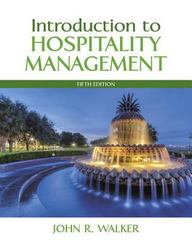Answered step by step
Verified Expert Solution
Question
1 Approved Answer
Politicians who criticise civil servants work should beware of the impact on trust in the organisation. In a report on trust failures in organisations for
Politicians who criticise civil servants work should beware of the impact on trust in the organisation. In a report on trust failures in organisations for the Chartered Institute of Personnel and Development, researchers studied trust levels across the UK working population. They found that trust among those working in the public sector, including the civil service, was lower than their private or not-for-profit counterparts. While this is unsurprising, as these are large organisations, our survey identified evidence of a distinctly hostile climate. The researchers spoke to groups of civil servants. They found that trust in the public service requires a careful balance, mainly because sector roles continue, despite political leadership changes. Civil servants revealed how those at the top of their organisation have a distinct and vital role in balancing their political masters. There must also be an equal balance between staff and the public they serve. Similar studies reveal that while positive social identities are developed among group members, impacting a persons self-definition, the same attachment makes it unacceptable to fail to show due care for the collective enterprise of the group. In the focus groups with civil servants, it was evident they viewed themselves as public servant, an active occupational choice which may have distinct financial costs to them but a strong identity nonetheless. Organisational psychologists have paid little attention to politicians as a type of worker, and political psychologists have neglected insights that might contribute to a broader understanding of factors that influence political campaigning and performance in office. Political leaders, recent performances show little evidence of their care and concern for the public servants who staff their ministries, and the public accounts committee is challenging the wisdom behind some of the choices being made. Trust is a very fragile commodity; we have a few great examples, such as John Lewis, that show how influential leaders can manage a crisis and maintain and enhance trust levels among followers. Trust is also developed and sustained through incremental steps, which include competence, respect, and integrity. Once trust has gone, it can be tough to get back, so there are consequences in blaming followers for failures. The research suggests that in the civil service, those in the most senior roles must be careful not to align themselves in toxic situations with their political masters and leave their staff feeling unsupported and undefended. Unfortunately, a further unforeseen consequence of public sector bashing will be the erosion of the talent pool of those who want to become public servants and those who want to become elected politicians.(a) What is the relevance of politicians in public sector decision-making?(b) Why do public officers need the trust of politicians?(c) Why is leadership essential for politicians in public administration
Step by Step Solution
There are 3 Steps involved in it
Step: 1

Get Instant Access to Expert-Tailored Solutions
See step-by-step solutions with expert insights and AI powered tools for academic success
Step: 2

Step: 3

Ace Your Homework with AI
Get the answers you need in no time with our AI-driven, step-by-step assistance
Get Started


